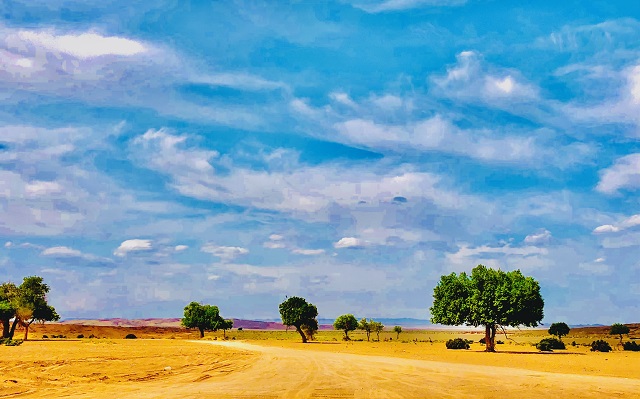Protection of the snow leopard through community management while improving rural climate resilience

This IKI Small Grants project addresses biodiversity conservation and climate resilience in Western and Southern Mongolia, which is home to the second largest population of snow leopards in the world. Community lands have little protection and are at high risk of biodiversity loss from poaching, mining, and large infrastructure, threatening communities that rely on this land for livelihood. The project helps to reinforce the land rights of 33 communities. It sets up and operationalises legally supported and government-accredited Community Responsible Areas (CRAs) to conserve snow leopard habitats. It assists communities in sustainably managing lands for pastoral production and biodiversity conservation. After legal recognition, the communities receive long-term assistance in diversifying their livelihoods and protecting and monitoring wildlife.
INITIAL SITUATION
By Mongolian law, land is state public property and pastureland is under government oversight, regardless of possession or use. Effectively, the lands targeted by the project have little protection and are at high risk of biodiversity loss from poaching, mining, and large infrastructure projects. This also threatens communities that rely on this land for livelihood.
The implementing organisation, Snow Leopard Conservation Foundation, mainly works with 36 livestock herding communities of Western and Southern Mongolia, composed of 561 families. It aims at securing land tenure rights for large parts of unprotected area, which forms critical pasturage and habitat for wildlife. These land areas represent the fragile ecosystem of the Altai and Gobi Mountain ranges and cover a minimum of 12,000 square kilometres of snow leopard habitat.
TARGET GROUP
The project’s target group are 36 livestock herding communities, which include 561 families, living in Community Responsible Areas (CRAs). A herder community is a group of 10-15 households who live in the same geographical area and jointly use its resources.
APPROACH AND ACTIVITIES
This IKI Small Grants project aims to establish legally supported and government accredited community managed CRAs among 36 local communities living in snow leopard habitats of Western and Southern Mongolia. The CRAs provide protection to a wide range of biodiversity through community partnerships and align with the Category VI of International Union for Conservation of Nature’s Protected Areas.
The CRA registration at federal level is a rigorous process, requiring several steps to receive approval at local and afterwards national level. First, communities propose their commitment of registration to the wider community government (called Bag, the least administrative unit). If the decision is made, next Soum (county) level government digitises CRA territories with certificates. This enables the CRAs to be registered at provincial level land registry system. The work continues with a consultation of land experts to have a federal level registry for 13 communities and 36 communities.
Additionally, the project advises on the operational management plans in all 36 communities. The work involves training and orientation workshops for community members in wildlife protection and monitoring. It further supports communities to diversify income generation while reducing herding pressure on livestock. It therefore induces herders to maintain herd sizes at the pasture’s carrying capacity. The communities’ capacities are further enhanced by workshops focused on wildlife monitoring, financial management, and participatory rural appraisal.
GALLERY
CAPACITY DEVELOPMENT
IKI Small Grants supports Snow Leopard Conservation Foundation in their organisational capacity development through gender-responsive, community-based conservation trainings for SLCF team members.
ABOUT THE ORGANISATION
Snow Leopard Conservation Foundation (SLCF) is a Mongolian NGO who aims to protect the threatened snow leopard and Mongolia’s biodiversity in collaboration with rural communities. SLCF provides capacity building on land management and works with local herders from more than 30 communities to seek their support for conservation through various community-based conservation programs and mobilizing grassroots and environmental advocacy.

